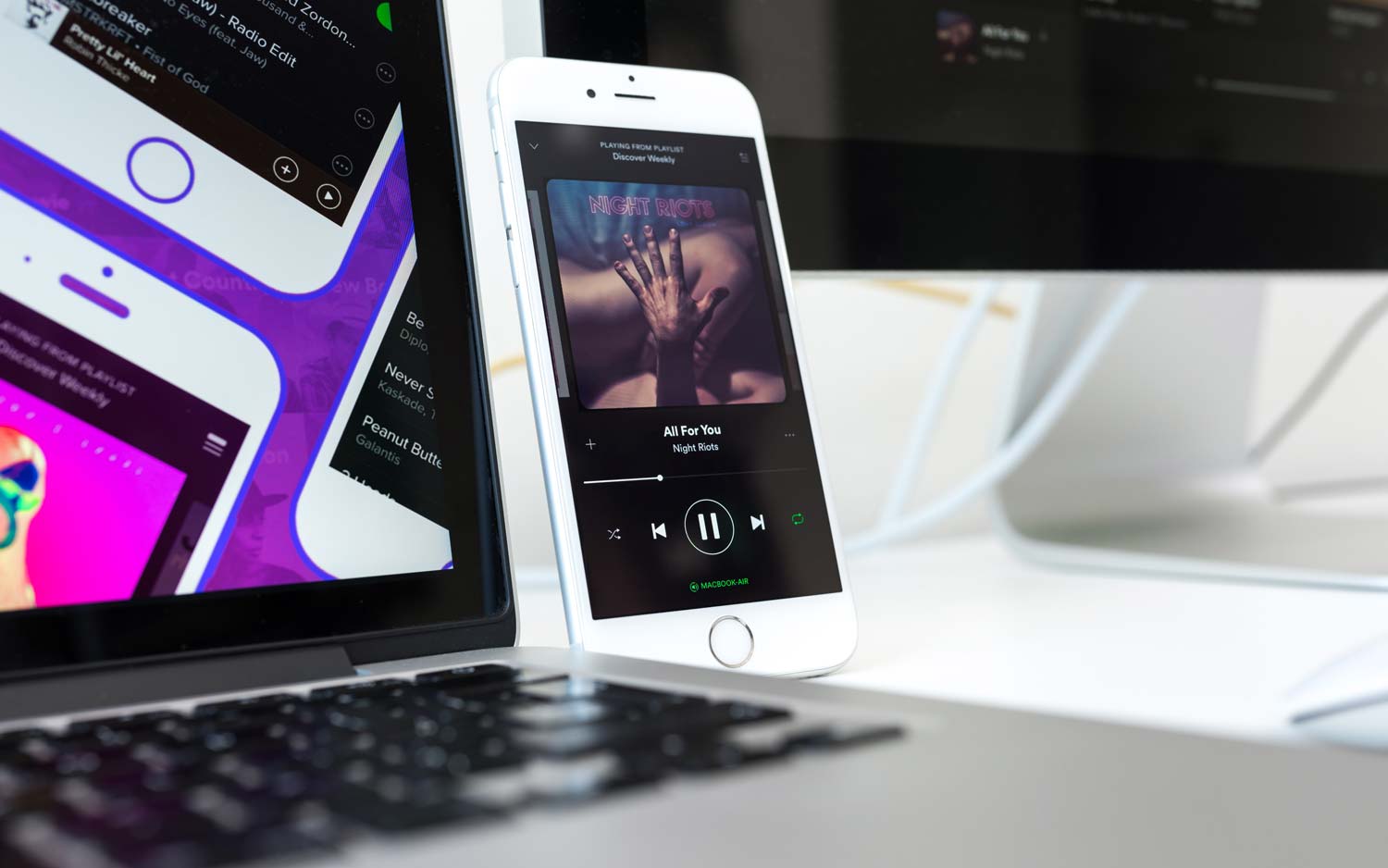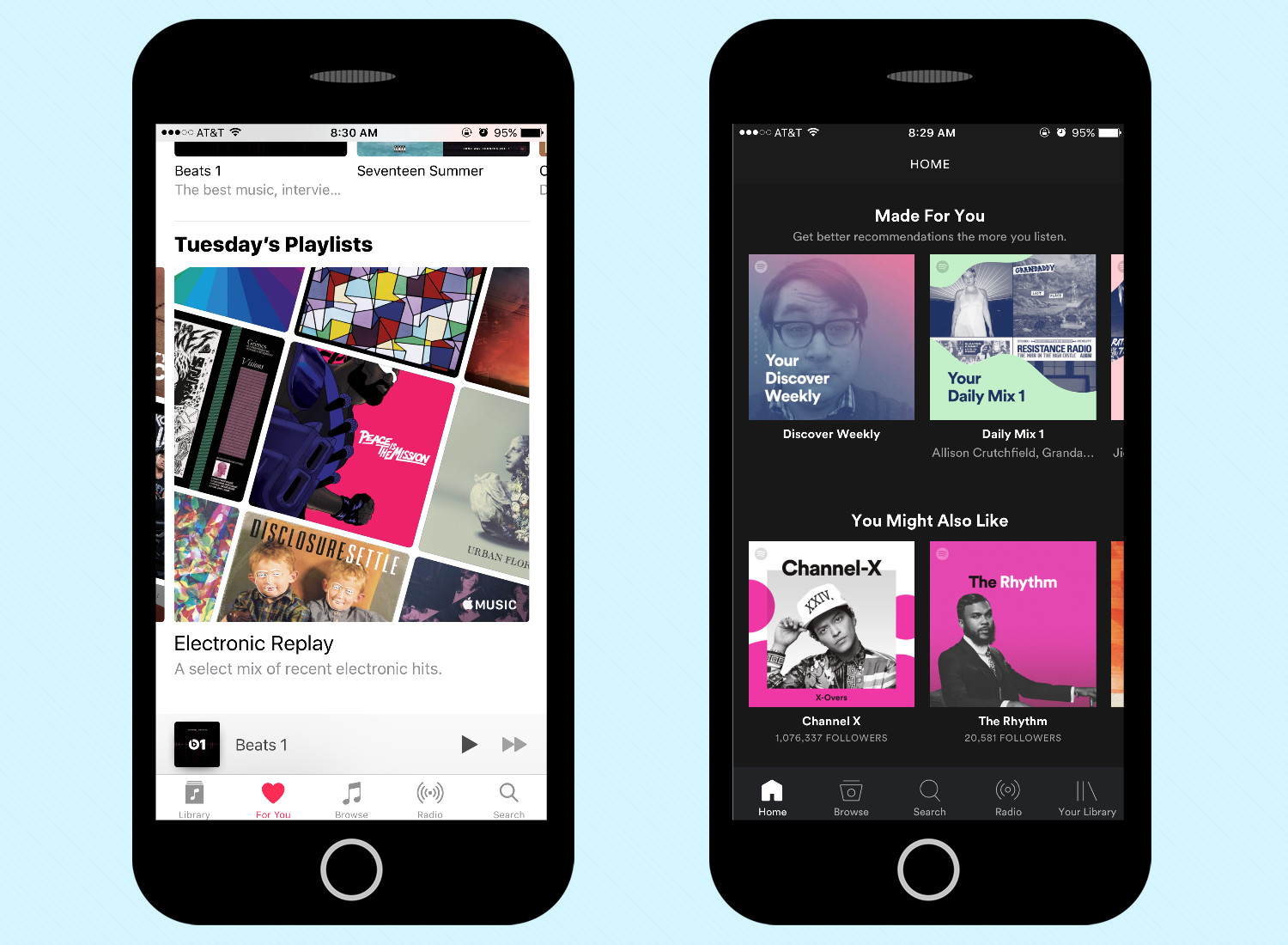Apple vs. Spotify: Who’s Really Right?
With Spotify filing an antitrust complaint about how Apple lets iOS users access its music service, here’s a closer look at the dispute between the two companies.
Spotify's dispute with Apple over how iOS users access the music service boiled over this week, as Spotify filed an antitrust complaint and launched a special marketing site to put pressure on Apple to change its business practices — or have them be changed by government regulators.

In many ways, this is an old story. For several years, Apple and Spotify have been jousting over Apple's App store rules. Apple claims that Spotify doesn't want to follow the rules that Apple has instituted to protect its users, while Spotify says that Apple is just trying to prop up its own second-rate services rather than straight-up competing.
Who's right? The truth, it will not surprise you, is somewhere in the middle.
Where Apple is right
When Apple created the App Store more than a decade ago, the goal was to provide a simple, frictionless way for regular consumers to buy and install software — something that had never really succeeded before. It succeeded wildly, in part because of the iPhone's appeal, but also because the App Store made things simple. Part of that process was pushing all financial transactions through Apple's own payment process, and taking a cut of that money in exchange for Apple's fees, costs of hosting, and development and maintenance costs in creating the App Store itself.
As a result, you can't buy digital content in the App Store without using Apple's payment process. You can pay for an Uber ride or buy a bookshelf from Amazon directly within an app using your credit cards, but buying an e-book or subscribing to Spotify must use Apple's approach.
"[Apple's rules] exist for one reason only: to give Apple an unfair advantage over the many other services that are working hard to compete for fans."—Daniel Ek, Spotify co-founder
Spotify's Daniel Ek says that Apple's rules "exist for one reason only: to give Apple an unfair advantage over the many other services that are working hard to compete for fans." But it's not unreasonable to argue that if every single app and game on the App Store began demanding that you type in your credit-card information for in-app purchases, it would be a fundamentally worse experience for users, while potentially opening them up to credit-card fraud.
I'd also argue that having an Apple ID set up with a credit card at the ready — making it incredibly easy to buy things on the App Store and inside apps — helps grease the skids of purchases. Aren't users more likely to pay for stuff if they just have to tap a couple of buttons, rather than laboriously enter in their credit-card data? This ease of payment benefits app developers, including Spotify.

And while Spotify has always chafed at Apple's rules — not so much because Spotify is a champion of its users but because it hates giving up 30 percent of its fee — I have to try hard not to roll my eyes at the streaming service's approach to the matter. Apple's warnings and rejections of Spotify app updates over the years point to a pattern of Spotify trying to subvert or circumvent Apple's rules, like a naughty schoolchild trying to push a teacher's every boundary.
So why am I not surprised that Spotify has launched Time To Play Fair, a slick marketing site that explains just how Spotify is fighting Apple not just for its own benefit but for the goodness of the entire community, at the same moment that it's asked the EU to investigate Apple's practices? Of course it has.
Spotify also complains that it's prohibited from getting access to Apple's HomePod speakers and the Apple Watch. I'm a bit skeptical about these protests, because if you talk to just about any developer they'll complain about the slow pace of Apple Watch development, and how there's basically no HomePod access today. I get that Spotify is champing at the bit to be on every Apple device, but so are lots of other developers — that's hardly proof of malfeasance.
Where Spotify is right
While I don't particularly love Spotify's approach here, I think there are numerous points in its favor. Apple's insistence on a 30 percent cut for in-app purchases and for the first year of subscription revenue is brutal for businesses that are reselling content produced by other parties.
Amazon and Comixology aren't marking up the digital cost of ebooks and digital comics by 30 percent to sell them online; if they gave Apple its cut, they would be selling all those products at a loss, which is why you can't buy ebooks or comics from within the Amazon or Comixology apps. That is a degradation of the iOS user experience that Apple should prioritize over its demand that it get its money.
Apple should prioritize the user experience over its demand that it get its money.
But it gets worse. As Spotify rightly points out, this also has the effect of propping up Apple's own competing products, which don't suffer from the 30 percent take. Apple can afford to sell ebooks and comics directly in the Books app because it doesn't have to pay itself a 30-percent tariff. Apple Music doesn't need to figure in Apple's tax, either. Regardless of the original intent, the result is that Apple's using its power as a platform owner to make it impossible for other companies to compete with its services.
At a time when Apple is pumping up the amount of revenue it gets from its services — and yes, all that App Store revenue is a part of that figure — it's hard to imagine Apple making choices that would reduce that flow of cash. And yet the result is that consumer choice is lost and the quality of the iOS user experience is degraded.
Where do we go from here?
Apple is not above making changes to its own policies. In the past few years it's encouraged the use of recurring in-app subscriptions by discounting the percentage it takes after the first year. It's not impossible to imagine Apple tweaking some other App Store policies to quiet criticism and avoid being forced to change its policy by regulators and courts.
Since Apple makes its own rules, it could try to carve out very specific exemptions for certain kinds of unique resold digital goods and subscriptions, enough to allow the likes of Spotify and Amazon to sell items within their own apps (or make direct web links to them, a practice that's also forbidden by Apple) without turning every free-to-play game into an in-app purchase disaster.
And here's the ultimate argument: If Apple wants to grow its services business, it needs to compete on features, not rely on artificial constraints it controls as a platform owner. In recent months we've seen Apple open up in ways it hasn't before — Apple Music is on the Amazon Echo and Amazon Fire platforms, AirPlay and iTunes are on numerous TV platforms — because it knows it needs to expand the footprint of its services beyond its own ecosystem.
On other platforms, Apple's services have to compete fairly. Why shouldn't the same be true on its own? Apple's apps will always have an advantage over the competition in that they're preinstalled — this is why more people use Apple Maps than Google Maps on iOS — but beyond that, shouldn't Apple Music, Books, and other services be judged solely on merit? Spotify thinks so, and I think that's right.
Sign up to get the BEST of Tom's Guide direct to your inbox.
Get instant access to breaking news, the hottest reviews, great deals and helpful tips.
Jason Snell was lead editor of Macworld for more than a decade and still contributes a weekly column there. He's currently running the Six Colors blog, which covers all of Apple's doings, and he's the creative force behind The Incomparable, a weekly pop culture podcast and network of related shows.
